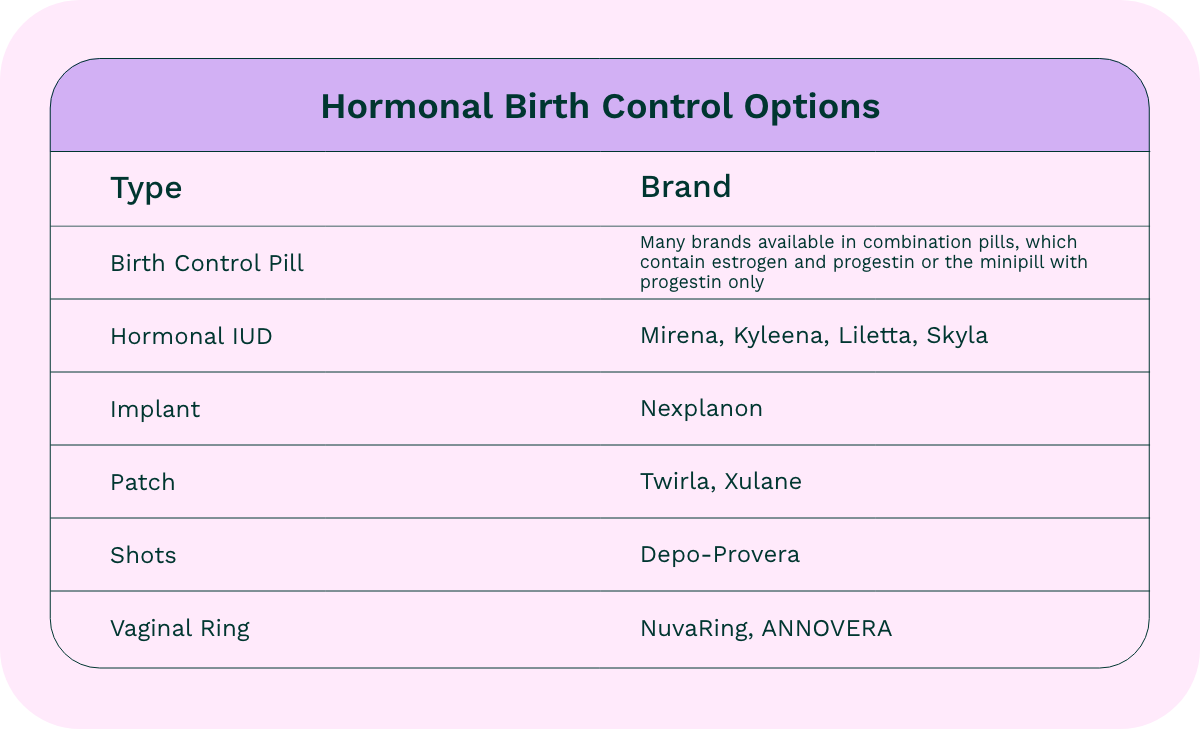
Fast Facts: What You Need to Know About Birth Control
Learn about hormonal and non-hormonal birth control options
Sep 22, 2021
Aug 17, 2023
Created With Support
Thaïs Diaz has a background in public health, nutrition and chronic disease prevention and works as a program coordinator for HealthyWomen. Her previous experience includes research and work at the University of Georgia focusing on the undergraduate population's food choices, nutrition, and overall health and well-being. During graduate school, she was a part of a research team that studied nutrition apps and how they're evolving in the public health sector. She also worked closely with a pediatrician on her upcoming book related to nutrition, sleep, exercise and family health. Thais focuses on health literacy and public health advice. She has volunteered with public health organizations that offer health education to Hispanic populations and translated for migrant farm workers as well as physicians.
She holds a bachelor of science degree in media and communication from Georgia Tech and a master of public health degree with a concentration in health promotion from the University of Georgia.
Full BioLearn about our editorial policies

Learn about hormonal and non-hormonal birth control options
Medically reviewed by Sabrina Sahni, M.D.
The best birth control option varies for each person. It's important to consider factors such as your lifestyle, schedule, medical history and any medicines you take when you pick a birth control method. As these details change throughout your life, the best birth control option for you might change as well.
Talking with your healthcare provider (HCP) can help you decide which type of birth control will work best for you. In the meantime, here are some basic facts about the options.


This resource was created with support from Evofem Biosciences.